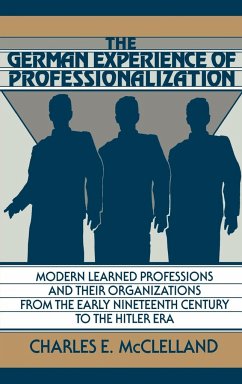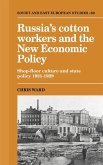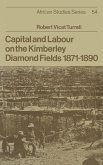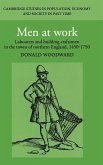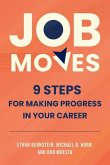Modern learned professions (medicine, law, teaching, engineering, and others) developed in central Europe just as vigorously as in England or America. Yet their close relationship with state power - more typical of the world development of professions than the Anglo-American model - led to a different historical experience of professionalization. This work is the first to explore that experience in a comprehensive way from the time when modern learned professions arose until the eve of World War II. Based on the history and surviving records of German professional organizations, it shows how the learned professions emerged gradually in the nineteenth century from the shadow of strong state regulation to achieve a high degree of autonomy and control over professional standards by the First World War. By studying professional groups collectively, it gives a more contoured picture of their fate under National Socialism than works dedicated primarily to the phenomenon of fascism itself.
Table of contents:
Acknowledgments; Abbreviations; Part I. The Problem of Professions in Germany: 1. Introduction; 2. Problems and methods in the history of modern German professions; Part II. The Transition to Modern Professions in the Early Nineteenth Century: 3. The beginnings of modern professions in Germany; 4. Professions between revolution and unification; Part III. Unified Professions in a Unified Germany?; 5. The organization of the 'free' professions: medicine, law, engineering, and chemistry; 6. Organization of state-service professions: teachers and the clergy; 7. Professional credentials in the new Reich; Part IV. Breakthrough and Breakdowns: The Professions Enter the Era of Cartels and Unions: 8. The 'free' professions, 1900-1918; 9. Law-based professions, 1900-1918; Part V. The Weimar era: 10. The 'free' professions under Weimar; 11. Professions based on law and pedagogy in the Weimar era; Part VI. The Fate of Professions Under and After Fascism: 12. Collaboration, coordination, and professionalization; 13. Conclusion; A word about sources; Index.
This work is the first to explore the historical experience of the learned professions in Germany from the time when they arose until the eve of World War II. It gives a more contoured picture of their fate under National Socialism than works dedicated primarily to the phenomenon of fascism itself.
An exploration of the experience of the modern learned professions in Germany up to World War II.
Hinweis: Dieser Artikel kann nur an eine deutsche Lieferadresse ausgeliefert werden.
Table of contents:
Acknowledgments; Abbreviations; Part I. The Problem of Professions in Germany: 1. Introduction; 2. Problems and methods in the history of modern German professions; Part II. The Transition to Modern Professions in the Early Nineteenth Century: 3. The beginnings of modern professions in Germany; 4. Professions between revolution and unification; Part III. Unified Professions in a Unified Germany?; 5. The organization of the 'free' professions: medicine, law, engineering, and chemistry; 6. Organization of state-service professions: teachers and the clergy; 7. Professional credentials in the new Reich; Part IV. Breakthrough and Breakdowns: The Professions Enter the Era of Cartels and Unions: 8. The 'free' professions, 1900-1918; 9. Law-based professions, 1900-1918; Part V. The Weimar era: 10. The 'free' professions under Weimar; 11. Professions based on law and pedagogy in the Weimar era; Part VI. The Fate of Professions Under and After Fascism: 12. Collaboration, coordination, and professionalization; 13. Conclusion; A word about sources; Index.
This work is the first to explore the historical experience of the learned professions in Germany from the time when they arose until the eve of World War II. It gives a more contoured picture of their fate under National Socialism than works dedicated primarily to the phenomenon of fascism itself.
An exploration of the experience of the modern learned professions in Germany up to World War II.
Hinweis: Dieser Artikel kann nur an eine deutsche Lieferadresse ausgeliefert werden.

